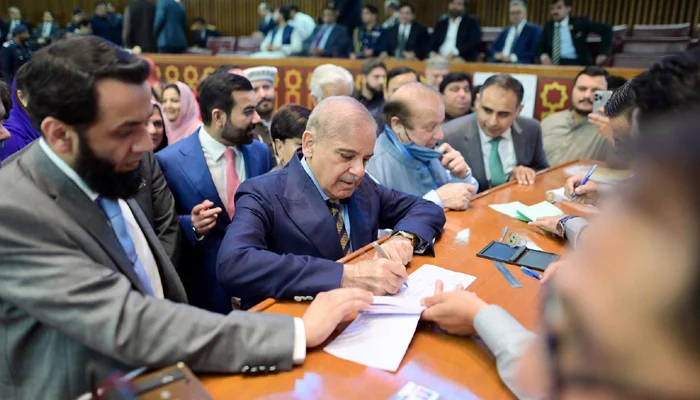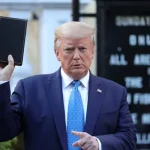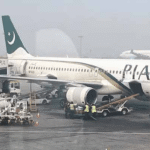With 11 seats, the Pakistan Peoples Party (PPP) led the Senate polls on Tuesday, while the Pakistan Muslim League-Nawaz (PML-N) secured six seats.
One seat was won by independent candidate Faisal Vawda and the Muttahida Qaudmi Movement Pakistan (MQM-P).
In the National, Punjab, and Sindh assemblies, voting for the 19 open seats took place, but the Election Commission postponed polls for 11 seats in Khyber Pakhtunkhwa due to the “denial” of oath-taking to MPs elected to reserved seats.
In the elections for the upper house of parliament, 356 parliamentarians voted in all; seven NA lawmakers’ votes were disqualified.
Sindh
Ten Senate seats were won by the Pakistan Peoples Party (PPP), which is currently in power in Sindh. The Muttahida Qaumi Movement-Pakistan (MQM-P) and an independent candidate won each Senate seat.
Preliminary results show that Ashraf Ali Jatoi, Dost Ali Jessar, Kazim Ali Shah, Masroor Ahsan, and Nadeem Bhutto have won the general seat.
Amir Chishti of the MQM-P was elected to the Senate on a general seat, and independent Faisal Vawda was also elected to the Senate on a general seat.
Leaders of the PPP Quratulain Marri and Rubina Saadat Qaimkhani were elected to the women’s seat, and Punjho Mil Bhail secured the minority reserved seat.
Technocrat seats were won by PPP candidates Sarmad Ali and Zamir Ghumro.
The results of the Senate polls were declared by Sharif Ullah, the provincial election commissioner, at the Sindh Assembly.
Punjab
After receiving 128 votes, Punjab’s Finance Minister Muhammad Aurangzeb won the technocrat seats in the upper chamber. After receiving 121 votes, PML-N leader and Federal Minister for Energy Musadik Malik was also elected as a technocrat.
In the women’s division, PML-N candidates Anusha Rahman and Bushra Anjum Butt have been proclaimed the winners, while Tahir Khalil Sindhu has been elected to the minority seat.
Islamabad
The candidates of the ruling alliance took home two seats in the federal capital.
Leader of the PML-N and Foreign Minister Ishaq Dar won the technocrat seat, whereas Mahmood ul Hassan, a candidate for the PPP, won the general seat and was elected to the upper house of parliament.
Earlier, voting hours for legislators in each of the three legislatures were extended from 9 a.m. to 4 p.m.
It’s interesting to note that the elections were originally supposed to take place in the KP Assembly, but the Election Commission of Pakistan (ECP) decided to postpone them after opposition members filed a plea, claiming that the provincial government was preventing MPAs-elect from taking their oaths in the reserved seats.
Initially, 48 senators were to be chosen through voting; these were 11 representatives from KP and Balochistan, 12 from Punjab and Sindh, and 2 from Islamabad.
Nevertheless, elections were held for 19 open seats following the unanimous election of 18 senators from Punjab and Balochistan and the postponing of the votes in KP.
“The Electoral College is Not Enough”: ECP
Elections for Khyber Pakhtunkhwa’s Senate seats will not take place until the elected members are sworn in against the reserved seats, according to the ECP’s announcement.
“The Commission, in exercising its authority under Article 218(3) of the Constitution, in conjunction with Sections 4(1), 8(c), and 128 of the Elections Act, 2017 and all other relevant enabling provisions of the Constitution and law, postpones the Senate Election to the extent of Khyber Pakhtunkhwa until the elected members are sworn in for the reserved seats. In light of this, the Commission modifies the notification issued under Section 107 of the Act as needed. The office has been instructed to follow up.The paper also stated that “no arrangement for oath was made” despite the fact that the notified members had approached the speaker of the KP Assembly to request the reserved seats for the administration of oath to them.







